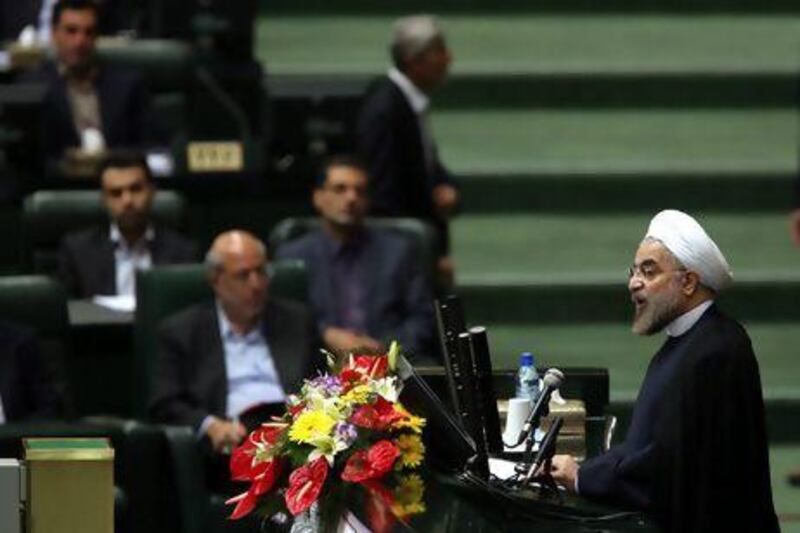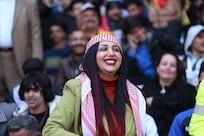Iran's new president fought off a blistering attack yesterday from hardliners who accused him of packing his proposed cabinet with pro-West reformists.
Hassan Rouhani, who took office this month, has named a cabinet of technocrats whose nominations must be confirmed by the conservative-dominated parliament.
Hardliners are enraged by Mr Rouhani's choices as ministers for education, science, housing and oil. The four were members of the reformist candidate Mir Hossein Mousavi's presidential campaign in 2009, when Mahmoud Ahmadinejad was re-elected, and they have come in for particular criticism for their roles in the demonstrations that followed.
Mr Ahmadinejad's win triggered huge anti-regime protests by supporters of Mr Mousavi and fellow reformist candidate Mehdi Karroubi, who alleged the vote had been rigged. Mr Mousavi and Mr Karroubi have been under house arrest since early 2011.
Conservative MP Attollah Hakimi criticised "the presence of plot leaders" and the "advanced age" of Mr Rouhani's proposed ministers. Ruhollah Hosseinian, another conservative, said parliament would bar those "who made statements in parliament and did not distance themselves from the sedition".
In a robust defence of his choices, Mr Rouhani said they were best qualified to tackle Iran's economic crisis and diplomatic isolation.
"We all know our country is in a difficult social and economic situation, and international pressure has aggravated these problems," he told parliament.
The West's sanctions were aimed at "limiting or closing the country's channels of exchange with the outside", he said, and he denounced "the method used by western countries ... who have taken society's elementary needs hostage" to put pressure on Iran to give up its nuclear programme.
Mr Rouhani said he had ignored political affiliations and chosen ministers on the basis of their abilities and experience. In another controversial choice, he named a woman, Elham Aminzadeh, as vice president for legal affairs.
In the confirmation process Mr Rouhani must present his programme and defend his choice of ministers to parliament, after which five MPs will defend the government and five will challenge it.
* Agence France-Presse, Bloomberg News and Associated Press





